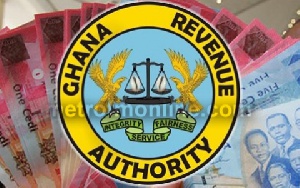Mr Abdallah Ali-Nakyea, Managing Consultant for WTS Ghana Tax Legal Consulting, has called on government to extend the tax identification numbers to other sectors of the economy to facilitate the identification of tax payers.
He said the proposed reduction of the scale excise duty in the 2016 budget from 4 bands to 3 bands was to improve efficiency in administration.
He said this during a public lecture on the 2016 budget held on the theme: “Implementing 21 national budget to consolidate progress towards a brighter medium term “.
Mr Ali Nakyea said there is the need for an evaluation as to how the country fared when it started implementing the scale excise duty policy since 2012.
He said the excise duty rate on tobacco was increased from 150 percent to 175 percent in the 2015 Budget Statement under paragraph 844 and that it appears the import of paragraph 929 is to maintain the duty rate at 175 percent for the 2016 year,
Mr Ali Nakyea said various tax laws were being reviewed and harmonized as part of the GRA modernization and reforms and that the Income Tax Act has been passed in 2015 to complement the VAT Act, the Customs Act and the Excise Duty Act and the Tax Administration Bill will be laid in Parliament in 2016.
He said a significant improvement is the final consolidation of the long overdue review of the Petroleum Income Tax law,1987 (PNDCL188) which now appears under Division I, Part VI captioned Special Industries in Act 896.
“The challenges in this regarding tax revenue mobilization are the non-retroactivity of legislation in Ghana as provided for under article 107(b) of the 1992Constitution”, he said.
He said Article 107 b states that “Parliament shall have no power to pass any law which operates retrospectively, impose any limitations on or to adversely affect the personal rights and liberties of any person or to impose a burden, obligation or liability on any person except in the case of a law enacted under articles 178 to182 of this Constitution”.
“It is thus in good riddance that all agreements in the petroleum sector are suspended till the passage of the Petroleum Exploration and Production Bill into law”.
Mr Ali Nakyea said the extent of consultations with relevant stakeholders such as Association of Ghana Industries, Chamber of Mines and professional bodies who may have been able to make some meaningful contributions to the development of tax laws in Ghana, in the passage of the Income Tax Act,2015(Act896), was not sufficient.
He said the review of tax exemptions is a welcome policy measure as it addresses the huge revenue lost through tax expenditures, being the tax revenue lost through tax exemptions.
Mr Ali Nakyea called for stakeholder consultations in the development and passage of new tax legislations so as to engender enhanced and increased tax compliance.
Mr Patrick Nomo, Director of Budget, Ministry of Finance, said government has introduced a number of expenditure rationalization measures for purposes of achieving the fiscal target.
He said the measures including regular adjustment of fuel and utility prices to achieve better targeting and thereby reduce related subsidies to the barest minimum.
Mr Nomo said progress has been made in addressing the significant economic challenges and the interventions outlined in the 2016 Budget and this will contribute significantly to the realization of the brighter medium term prospects for the country.
Business News of Friday, 4 December 2015
Source: GNA



![New IGP, COP Christian Tetteh Yohonu [L] and immediate-past IGP, Dr. Akuffo Dampare New IGP, COP Christian Tetteh Yohonu [L] and immediate-past IGP, Dr. Akuffo Dampare](https://cdn.ghanaweb.com/imagelib/pics/140/14041582.295.jpg)









